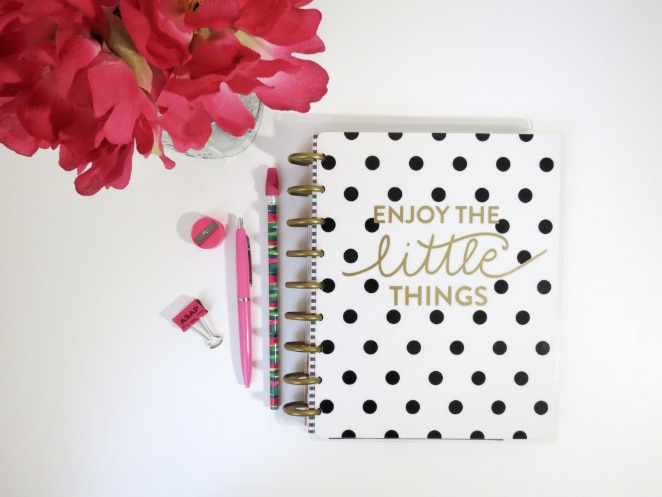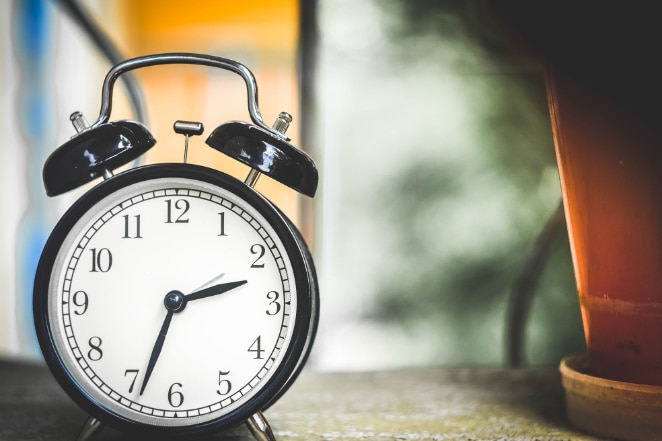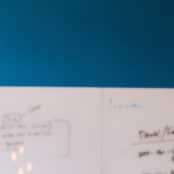
One of my favorite things about attending conferences is the organization and flow that comes with the agenda for the meeting. When things are scheduled accordingly, my time is maximized, my productivity is at an all-time high, and I truly feel like I am getting the most out of whatever I am doing.
Applying the same scheduling and organizational benefits of a conference to your everyday life can ensure similar feelings of success. And while it may not translate quite so literally in the real world, expert-level scheduling is worth a try in whatever ways you can make it work.
Below are some top tips to do just that; set your own schedule for maximum success.

Don’t schedule every single minute
Conferences are known for never having a dull moment. From early morning breakfasts to after-hours parties, it can feel like most every minute of your day correlates with a place to be or a thing to do. While that certainly makes the day go by fast, a jam-packed schedule is actually not something to strive for in the real world.
Why is that? Because calls can go over their allotted time, people can run late to meetings, and things can take longer than expected. Why risk disappointing a colleague or client because you can’t make the commitment after all? Or why risk completely overwhelming yourself to the point you can’t follow through and perform? All of this can happen if you over-schedule yourself.
Pro-tip: Don’t undermine the power of a plain ol’ planner. While there are limitless tools and apps online to help you stay organized, sometimes the best way to keep your schedule sound (and sane!) is to keep track of things in a pen-and-paper planner. Here, you can color code things based on the category (travel, meetings, deadlines, etc.) and when you actually write the commitment down, it even helps you remember and retain it better.
Pad your appointments
When scheduling, don’t block yourself in with back-to-back appointments. Hopping off your 8:30-9:30 a.m. call only to start your next at one at 9:30 doesn’t give you much time to regroup. If you pad those with even just 15-minute breaks, you allot yourself the freedom to reply to pressing emails or return a quick call to someone else. Those breaks are necessary to keep your day successfully flowing, as you can never predict all the things that will pop up throughout a day that will need your attention and can derail you from your tasks.

Pro-tip: If you pencil in an important meeting because you absolutely do not want to miss out on it, make sure to do the same for email-checking, research, design or revision time, etc. Those tasks are just as important as face-time with a client, and if you don’t schedule them, they may not happen. So, put them down in your planner as a sure way to set yourself up for a day that’s balanced for success on all fronts.
Schedule free time
Just like crucial client calls, free time should also be scheduled into your official calendar. Free time can be anything like lunch, the gym, reading outside in the sun, a hair appointment, etc. It’s important to schedule these “reset” activities once a day for at least 30 minutes. Pressing the pause button on work can actually make you more productive when you sit back down at the desk versus just powering through the entire 8-10 hour work day.

And if you work in an office or virtually with other co-workers, you should consider sharing your schedule with them so that they can be mindful of your commitments. If they can see you’ve allotted yourself an hour of free time over lunch, they will know not to schedule a call or a check-in during that time.
Pro-tip: “Be intentional about the goals you set and break them down to a granular level. ” We often look at a plan for a year or a quarter (usually as it relates to a client), but what about looking at what you’d like to achieve for yourself in a given week or even just the day? When you break your goals down into bite-sized chunks, you increase your probability for achievement ten-fold.
What are your thoughts on scheduling? Do you prefer powering through or scheduling breaks? Do you use a traditional planner, or do you use an app/online tool? Feel free to share your thoughts or additional tips to these three.






Comments ( 3 )
PatrickPoono
June 12, 2025
https://semaglupharm.com/# Semaglu Pharm
Bethany
April 29, 2025
Sometimes a successful schedule is a schedule with less tasks. Check out how to simplify your daily plan to get better results: https://kanbantool.com/blog/simplify-your-daily-planning-to-reduce-stress
create binance account
April 4, 2025
Thank you for your sharing. I am worried that I lack creative ideas. It is your article that makes me full of hope. Thank you. But, I have a question, can you help me?